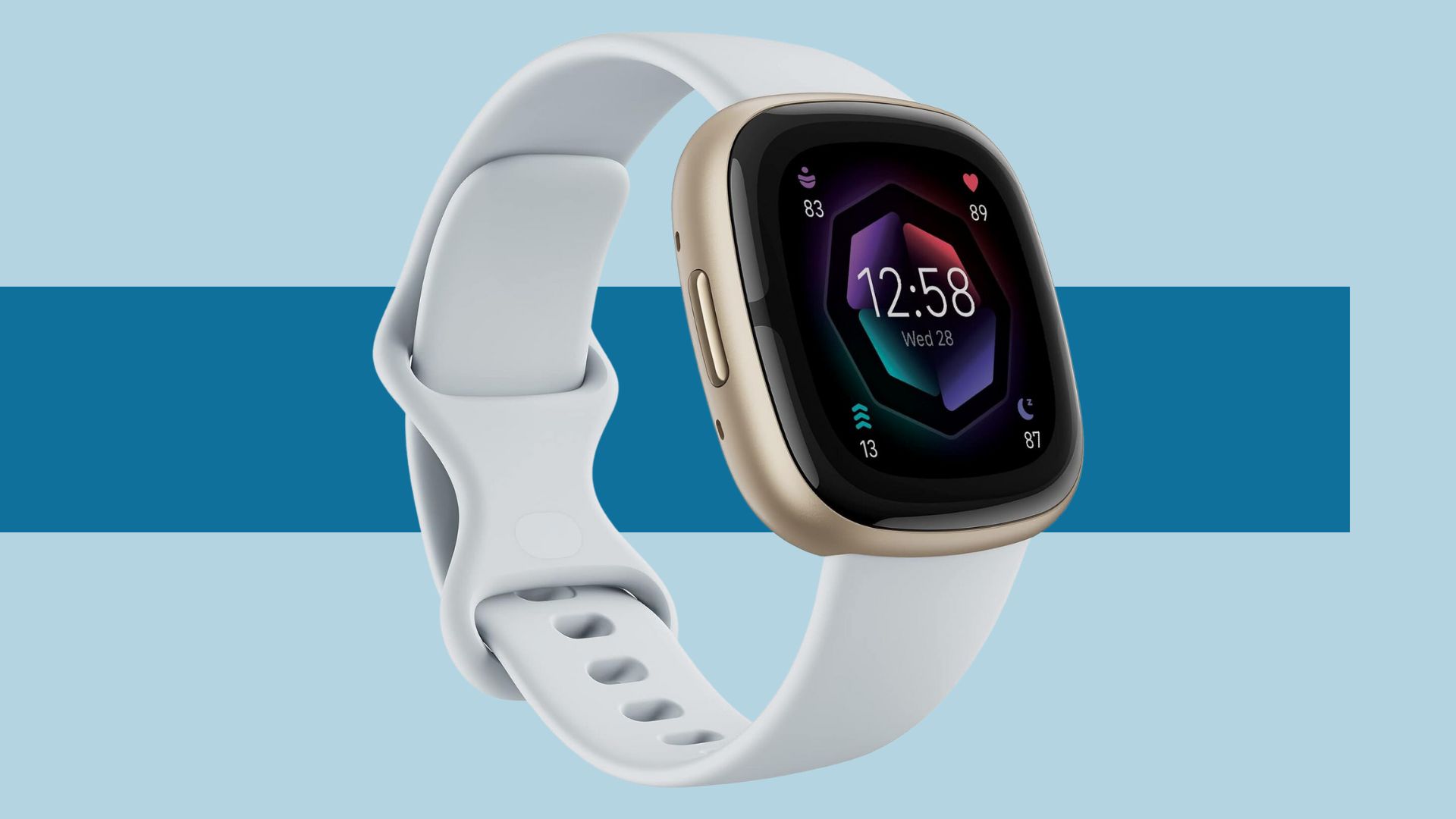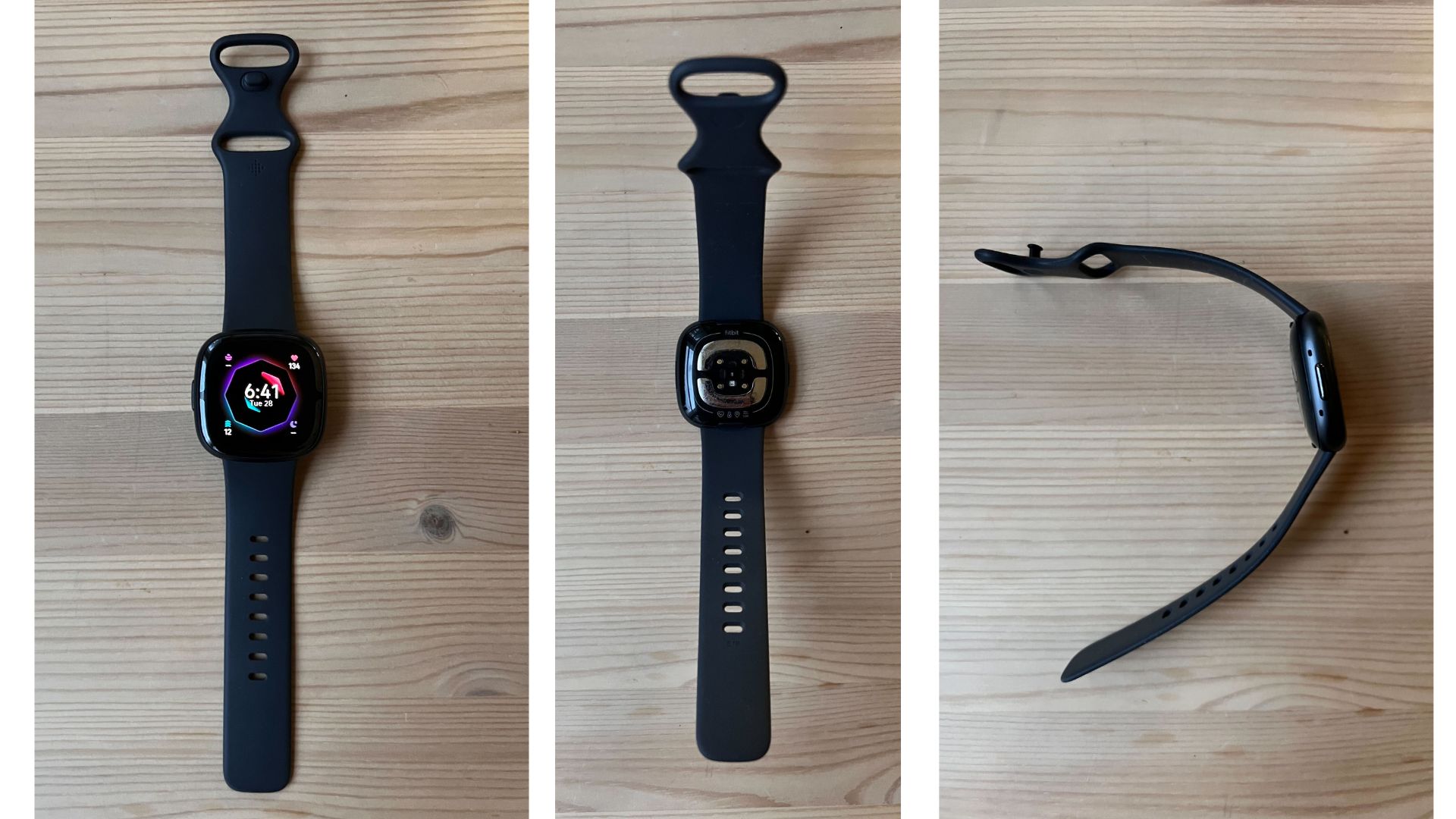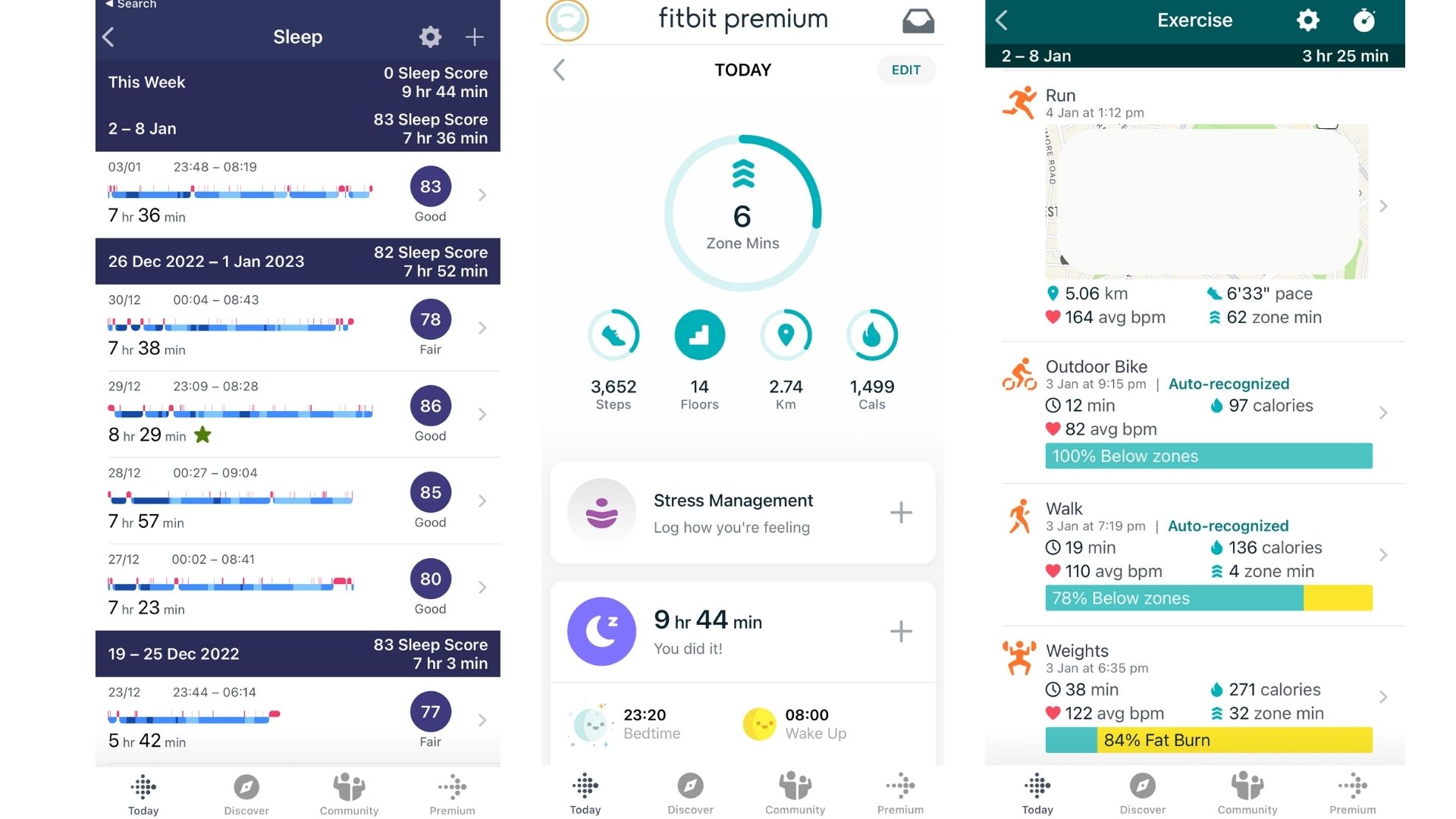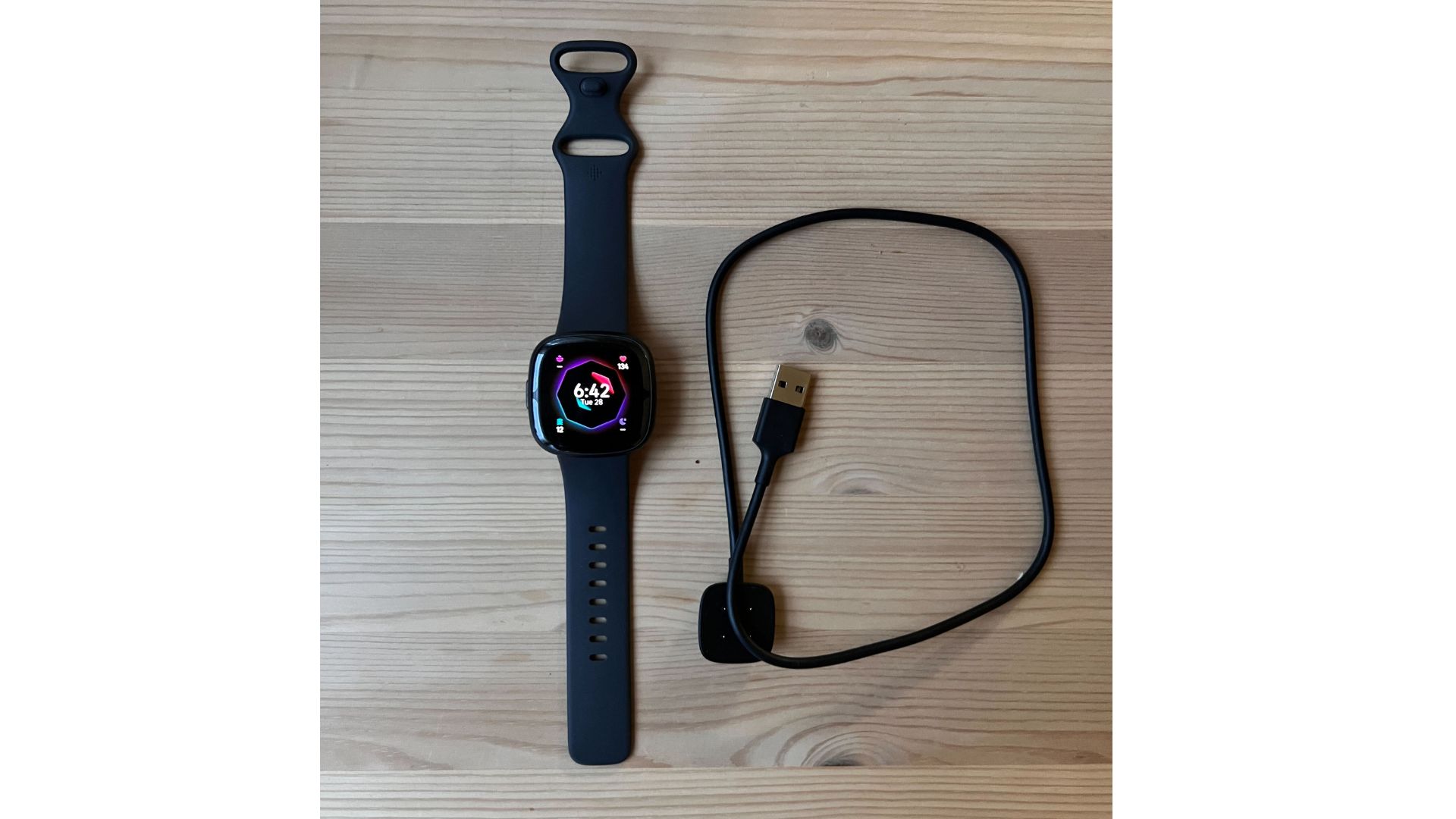
As a runner and regular gym-goer, I'm always looking for tech to help me better understand how to improve my fitness - and the Fitbit Sense 2, is designed for those just like me. While it's similar to the Versa models and the earlier Sense device in many ways, additional health-tracking features make it a standout smartwatch.
As woman&home's digital health editor, a keen runner, and a lover of fitness stats, I've been a Fitbit fan for at least the last five years. From the earliest versions of fitness trackers to the latest models, there's not a Fitbit that I haven't tried. But while they all have their plus points, some are better than others and they're all suited to different needs. The Fitbit Sense 2 was released almost two years ago and that's exactly why I've taken the device out for another spin in 2024, to figure out if the smartwatch still stands up to its stellar reputation as one of the best Fitbits.
The Fitbit Sense 2 should capture the attention of those looking to carefully monitor their sleep and overall health at home, through additional features like on-wrist sleep insights and profile, the ECG sensor, and irregular heart rhythm notifications. Here, I review the Fitbit Sense 2 and reveal all there is to know about the Fitbit Sense 2, for those new to the brand and anyone looking for an upgrade.
Fitbit Sense 2 review
Fitbit Sense: Specifications
- Size: 1.5" l x 1.5" w x 0.45" h
- Battery life: 6+ days
- Charge time: Two hours
- Waterproof: Yes
- Colour range: Three (Shadow Grey / Lunar White / Blue Mist)
- RRP: £219.99
Fitbit Sense 2: An overview
The Fitbit Sense 2 is a smartwatch that measures fitness essentials (including heart rate, step count, calorie burn, distance travelled, and so on), sleep efficiency and stress levels. Yet, it offers more of an overall picture of health compared to the many other Fitbit types, thanks to the advanced sensors (which include an ECG app, skin temperature sensor, and breathing rate monitor) and improved sleep metrics on-wrist, making it an excellent choice both for those who want to improve their general health and those who want to keep an eye on something specific.
As a smartwatch, the Fitbit Sense 2 also has some key lifestyle integration features that make it a great option for those looking for a little day-to-day assistance. For example, you can receive calls, texts, and app notifications, take on-wrist calls via Bluetooth, pay using Fitbit Pay, and use Google Maps.
The Fitbit Sense technology is wrapped in lightweight aluminium, 10% thinner and 15% lighter than the previous model, with the standard silicone Infinity band included in the box as standard. It sits close to the wrist, offering a streamlined and discreet appearance even in the brighter colourways.

Fitbit Sense 2: What's it like to use?
One of the reasons why I love having a Fitbit is that they're so universally easy to use - and the Sense 2 is no exception. Despite being a more advanced model, I found the device simple to navigate and view statistics on, with a side button to bring the device to life and send it to sleep, and a dedicated page for the fitness tracking most important to you. For example, I started doing walking as a workout when I first tested this device, so I decided to track how many steps I did during the day. Just by swiping right once, I could see my total for the day.
It was also easy to start workouts from my wrist, with just one swipe left needed to access my favourite workout modes, and another touch to get going with a workout. Also accessible from your wrist is the useful self-timer and the weather outlook for the day.
One highlight of using the Sense 2 over other Fitbits is the layout of the homepage on the small, square-shaped screen of the device. While many models offer three quick-view statistics on the homepage, Sense 2 offers four: Stress score, heart rate, Active Zone Minutes (how many minutes you've been exercising for that day), and sleep score. This is a change from some of the more fitness-orientated devices as the default choice of these four statistics differs from the others. Traditionally, the three on the homepage are heart rate, steps, and calorie burn, and this shows how much the device is orientated towards a holistic health approach, rather than being an advanced fitness tracker like the new Fitbit Charge 6.
Like all other Fitbit devices, you connect the Sense 2 to the Fitbit app. This again is super simple to do and doing so, regardless of whether you've opted for Fitbit Premium over the free version, enables you to view more detailed insights. This includes an overview of your sleep score (including the stages and number of hours spent asleep) and exercise statistics over the week. If you opt for Fitbit Premium vs free, you'll also get your Daily Readiness Score (a rating of how ready you are to exercise that day depending on your heart rate variation, sleep, and stress scores).

There are very few downsides to using a Fitbit Sense 2. It's a complete smartwatch, attuned for those looking to take a serious overview of their health and improve their wellness routine through exercise, better nutrition (there are free recipes available within the app), and lowering their stress levels, while looking out for any signs of serious health issues.
However, I did experience a couple of glitches while testing out the Sense 2, which online forums tell me are common among the newer Fitbit devices, unfortunately. These glitches were: not being able to turn the device's face off using the side button (I had to switch the settings to enable turn-off via wrist movement) and an exercise automatically stopping mid-workout without explanation. After resetting my device, these problems didn't occur again.
Sleep tracking on the Fitbit Sense 2
I mentioned the standard Fitbit sleep offering and how easy it is to use on the Sense 2. However, the device goes above and beyond when tracking sleep in multiple ways - provided you wear your device when you sleep.
Firstly, the heart rate variability (HRV) and skin temperature sensors stay ticking over throughout the night. I haven't found a good use for this data during the day, but the sensor records your temperature as you sleep and if your skin temperature at night is very different to your baseline, it could be a sign that something's wrong - and the Sense 2 will flag this to you.
Secondly, I appreciate that you can now see sleep insights on your watch with the Sense 2, rather than checking in the app every morning. With a singular swipe, you can see your sleep score and duration, with further insights available in the app and with Fitbit Premium.
And thirdly, when you wear your Sense 2 to bed consistently for at least 14 nights a month and sign up to Fitbit Premium, you can see your Sleep Profile on your wrist (and in the app) as well. This highlights what kind of sleeper you are and makes key recommendations for how you can learn how to sleep better in the future.
There's only one other device in the range that offers this: the Fitbit Versa 4, our top choice for best Fitbit overall.
Battery life and charging the Fitbit Sense 2
One of the most impressive elements of the Fitbit Sense 2 is the battery life. Over three days this year, I used the Fitbit Sense to record a spinning workout, a short run, and a strength training session at home. Overall, I was actively recording for several hours and my battery percentage dipped to just 70%. This is really impressive, especially when compared to advanced devices like the new Apple Watch Series 9, which lasts just 36 hours.
As noted, I've used Fitbit devices for years now. Over time I have found that the battery life wanes and it's the same case with the Fitbit Sense 2. The battery I found lasted for at least a week when I first used the device, but has dropped over the last two years to just a couple of days. Still, this is good.
Much like the Versa models, the Sense 2 is charged using a square-shaped port that magnetically attaches to the underside of the device and plugs into the wall via USB. It's such a simple charging mechanism and the same charger across all versions of the Sense and the Versa, so if you upgrade from these models, you'll have a spare cable.

Is the Fitbit Sense 2 waterproof?
The Fitbit Sense 2 is water resistant up to 50m. This means you can splash, swim, and shower with the device on your wrist provided you don't go out of this depth. Once you're out of the water, I'd always suggest taking off and drying the watch band. I've found the mixture of the water and silicone material of the strap can create a pink rash around your wrist over time.
However, the Fitbit Sense 2 is not the best choice for keen swimmers. Unlike the Fitbit Luxe, Charge 5, Inspire 2 and 3, and Fitbit Versa 3, this model doesn't have a manual lock to prevent water from accidentally activating the screen. The lock doesn't change the water resistance of the device though so if you don't mind this, go right ahead. I've used multiple devices including this one in the water before and found it doesn't cause too much of an issue but this could become a problem for more regular swimmers.
Is the Fitbit Sense 2 worth buying?
In my opinion, the Fitbit Sense 2 is only worth upgrading to if you're looking to transfer from a fitness tracker to a smartwatch, move from an older model to a newer one, or buy a Fitbit for the very first time. For example, if you currently have the Fitbit Charge 4 and you're looking to move over to a Fitbit smartwatch, this is a great choice.
Otherwise, it's very similar to some other models of Fitbit smartwatch - especially the Versa 3 and 4. While the Sense 2 prioritizes cardiovascular health over fitness specifically, it shares many features (including design) with these two newer models.







